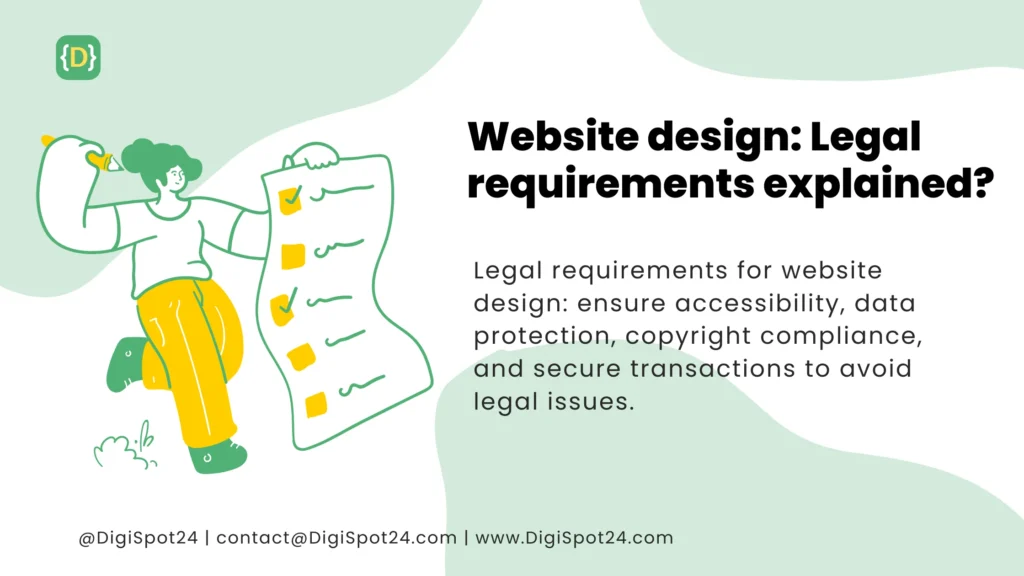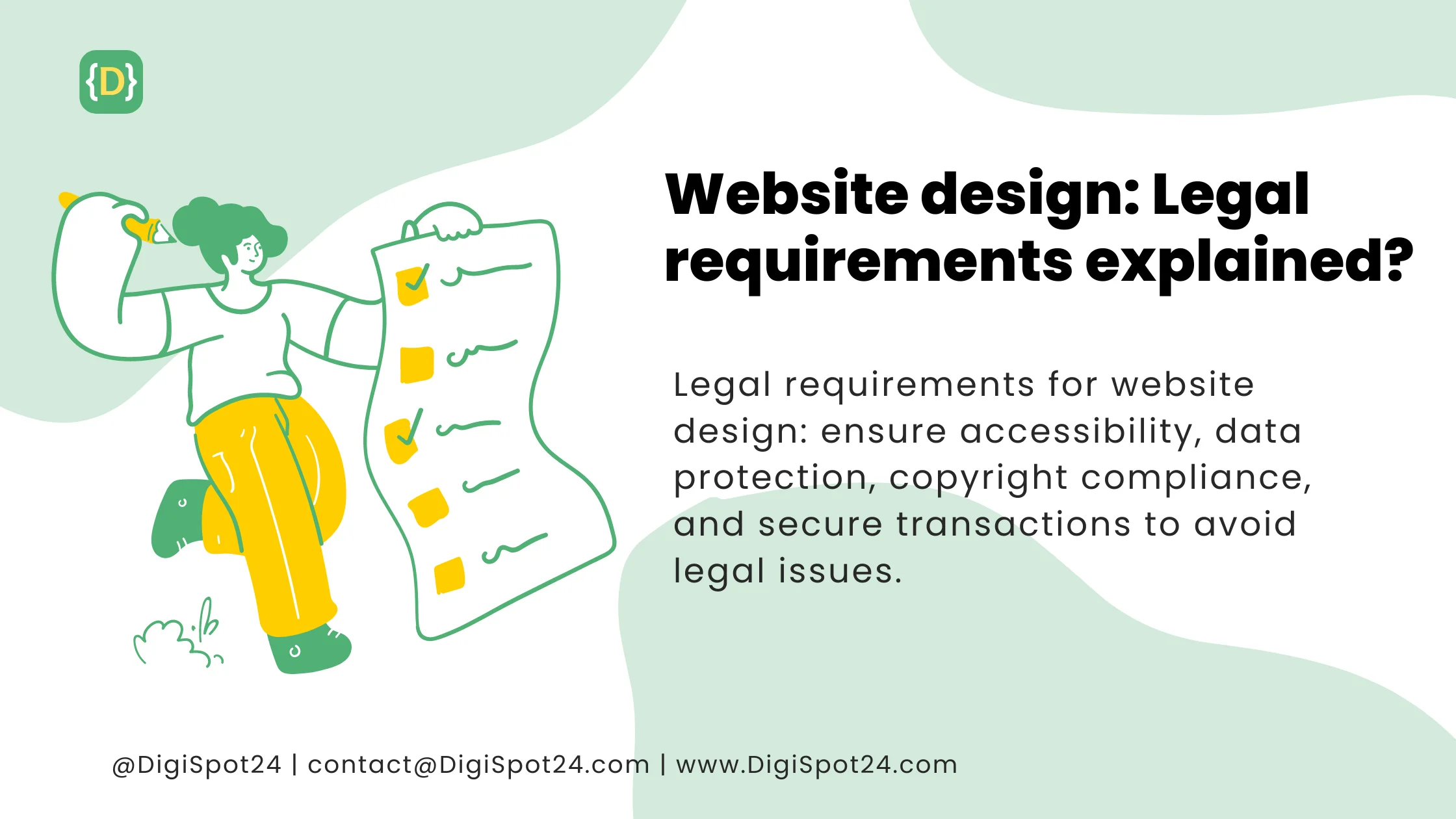Website design: Unraveling the Legal Requirements
In today’s digital age, having a well-designed website is essential for businesses, organizations, and individuals looking to establish an online presence. However, beyond aesthetics and functionality, it’s crucial to understand the legal requirements for website design. Compliance with these regulations not only helps avoid potential legal issues but also ensures your website is accessible and user-friendly for all visitors.
1. Website design: Accessibility Compliance
Americans with Disabilities Act (ADA)
One of the most important legal requirements for website design is ensuring accessibility for individuals with disabilities. The ADA mandates that websites must be accessible to people with a range of disabilities, including visual, auditory, and motor impairments. This can be achieved by following the Web Content Accessibility Guidelines (WCAG) 2.1, which provide a comprehensive set of recommendations for making web content more accessible.
Section 508
In the United States, Section 508 of the Rehabilitation Act requires federal agencies to make their electronic and information technology accessible to people with disabilities. While this directly applies to federal websites, it’s also a good practice for private businesses to follow these guidelines to ensure broader accessibility and avoid potential lawsuits.
2. Website design: Privacy and Data Protection
General Data Protection Regulation (GDPR)
If your website collects data from users within the European Union, you must comply with the GDPR. This regulation requires websites to obtain explicit consent from users before collecting their personal data, provide clear information about data usage, and ensure that users can access and delete their data upon request. Non-compliance can result in hefty fines.
California Consumer Privacy Act (CCPA)
Similar to the GDPR, the CCPA applies to businesses that collect personal information from California residents. It grants consumers the right to know what personal data is being collected, to whom it is being sold, and the ability to access, delete, and opt-out of the sale of their data. Ensuring compliance with the CCPA is crucial for businesses operating in or serving customers from California.
3. Website design: Copyright and Intellectual Property
Copyright Law
When designing a website, it’s important to respect copyright laws. This means avoiding the use of images, text, videos, and other content that you do not own or have explicit permission to use. Using copyrighted material without authorization can lead to legal disputes and significant penalties.
Trademark Law
Similarly, ensure that your website does not infringe on any trademarks. This includes the use of logos, brand names, and slogans that are legally protected. Infringing on trademarks can result in costly lawsuits and damage to your brand’s reputation.
4. Website design: E-Commerce Regulations
Payment Card Industry Data Security Standard (PCI DSS)
If your website handles online transactions, it must comply with PCI DSS to protect cardholder data. This involves implementing secure payment processing methods, maintaining a secure network, and regularly monitoring and testing security systems to prevent data breaches.
Consumer Protection Laws
E-commerce websites must also adhere to consumer protection laws, which vary by region. These laws typically require transparent pricing, clear return and refund policies, and accurate product descriptions to prevent deceptive practices.
5. Website design: Terms of Service and Privacy Policies
Terms of Service (ToS)
A well-drafted ToS agreement is essential for protecting your website from legal disputes. It outlines the rules and guidelines for using your website, limitations of liability, and the legal jurisdiction in case of disputes. Ensure your ToS is clear, concise, and accessible to all users.
Privacy Policy
A privacy policy is a legal requirement for websites that collect personal data. It should detail what information is collected, how it is used, stored, and protected. The privacy policy must also explain users’ rights regarding their data and how they can exercise those rights. Transparency is key to building trust and ensuring compliance with data protection regulations.

Conclusion
Adhering to the legal requirements for website design is not only a matter of compliance but also a best practice for creating an inclusive, secure, and trustworthy online presence. By ensuring accessibility, protecting user data, respecting intellectual property, complying with e-commerce regulations, and providing clear terms and privacy policies, you can safeguard your website against legal issues and enhance the user experience. Stay informed about the latest regulations and updates to ensure your website remains compliant and competitive in the ever-evolving digital landscape.
Read Also
SEO Website Optimization: Tips for Success
See Our Portfolio







